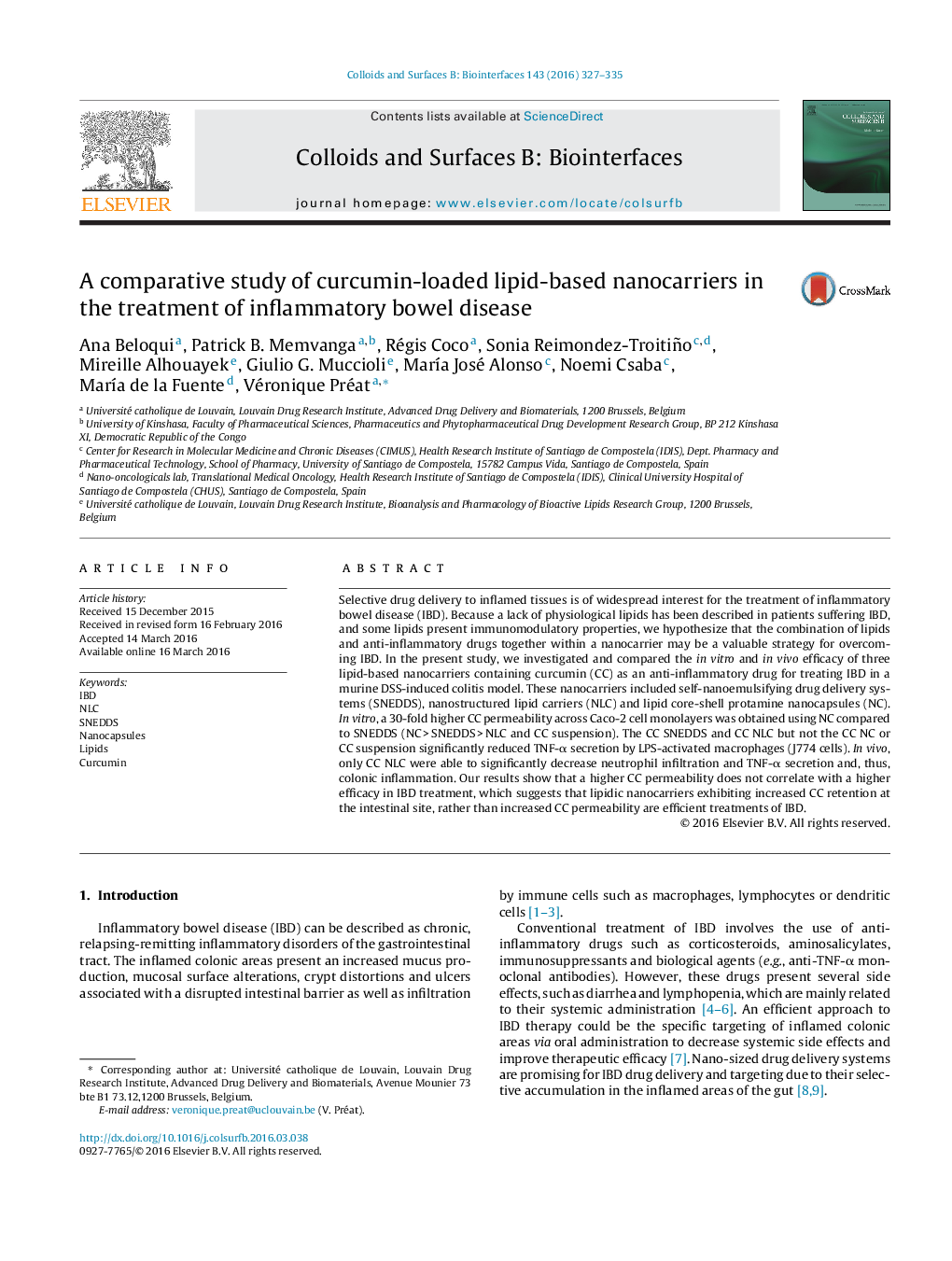| کد مقاله | کد نشریه | سال انتشار | مقاله انگلیسی | نسخه تمام متن |
|---|---|---|---|---|
| 599054 | 1454261 | 2016 | 9 صفحه PDF | دانلود رایگان |
• Three lipid nanocarriers containing curcumin (CC) were evaluated for IBD treatment.
• Nanocapsules (NC) exhibited a 30-fold higher CC permeability across Caco-2 cells.
• CC SNEDDS and CC NLC but not CC NC significantly reduced TNF-α secretion in vitro.
• In vivo, only CC NLC were able to significantly decrease MPO and TNF-α secretion.
• Higher CC permeability did not correlate with a higher efficacy in IBD treatment.
Selective drug delivery to inflamed tissues is of widespread interest for the treatment of inflammatory bowel disease (IBD). Because a lack of physiological lipids has been described in patients suffering IBD, and some lipids present immunomodulatory properties, we hypothesize that the combination of lipids and anti-inflammatory drugs together within a nanocarrier may be a valuable strategy for overcoming IBD. In the present study, we investigated and compared the in vitro and in vivo efficacy of three lipid-based nanocarriers containing curcumin (CC) as an anti-inflammatory drug for treating IBD in a murine DSS-induced colitis model. These nanocarriers included self-nanoemulsifying drug delivery systems (SNEDDS), nanostructured lipid carriers (NLC) and lipid core-shell protamine nanocapsules (NC). In vitro, a 30-fold higher CC permeability across Caco-2 cell monolayers was obtained using NC compared to SNEDDS (NC > SNEDDS > NLC and CC suspension). The CC SNEDDS and CC NLC but not the CC NC or CC suspension significantly reduced TNF-α secretion by LPS-activated macrophages (J774 cells). In vivo, only CC NLC were able to significantly decrease neutrophil infiltration and TNF-α secretion and, thus, colonic inflammation. Our results show that a higher CC permeability does not correlate with a higher efficacy in IBD treatment, which suggests that lipidic nanocarriers exhibiting increased CC retention at the intestinal site, rather than increased CC permeability are efficient treatments of IBD.
A schematic overview of the efficiency of CC-loaded lipid-based nanocarriers in treating IBD.Figure optionsDownload as PowerPoint slide
Journal: Colloids and Surfaces B: Biointerfaces - Volume 143, 1 July 2016, Pages 327–335
